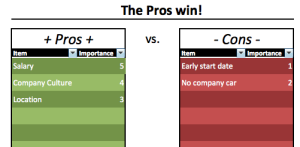
When applying to business schools, you’ll notice that many schools request scores from the Graduate Management Admissions Test, or GMAT. This standardized test is designed to test a prospective business school master’s candidate’s quantitative, verbal, reasoning, and writing schools. Most schools prefer candidates who have taken the GMAT, as the test evaluates the skills that are most relevant to a business education and is often a good predictor of your success in a graduate-level business program.
That being said, there are circumstances in which business school applicants may not need to take the GMAT. Few applicants actually want to take the test; much like the SATs or the GREs that most of us are familiar with, the GMAT requires spending several hours in a testing center in addition to a substantial amount of prep time. For those applicants who may not have strong skills in certain areas, the test can be intimidating – and at $250 per test, it’s not always economically feasible to take the exam multiple times to improve your score.
Knowing this, you might be considering requesting a GMAT waiver for an online MBA program. Before you put in your request, there are some important things you need to know.
Only Experienced Applicants Need Apply
While some schools do not request GMAT scores from applicants, or give applicants the option of whether to submit scores or not, most business programs do want to see test scores. However, admissions committees also realize that many potential students have a great deal of professional experience, not to mention some have already earned master’s degrees in other subjects. For these applicants, the GMAT isn’t likely to reveal new information that will influence the admissions decision, and thus a waiver may be appropriate.
In most cases, a GMAT waiver is granted to those applicants who:
- Have substantial professional work experience (typically between 7-10 years) with a track record of progressive achievement
- Excellent undergraduate transcripts, with a high GPA and excellent performance in math and business courses
- A master’s degree or advanced certification in any field. Some schools will also grant waivers for applicants with a bachelor’s degree, if they meet the other criteria.
It’s important to note that waivers are typically only granted to students who meet all of the criteria. In other words, even if you have 10 years of experience, if your undergraduate transcript is a disaster, you’re unlikely to be granted a waiver. To request the waiver, you will often need to draft a letter outlining your experience and qualifications, as well as submit relevant paperwork.
Should You Request a Waiver?
If you meet the requirements for a GMAT waiver, you might be tempted to just submit the formal request and skip the stress of the test. However, there are some very compelling reasons that you might not want to do that, especially when applying to competitive business schools.
For starters, not submitting GMAT scores means that the rest of your application package needs to be top notch. A fair number of schools look at the GMAT first to determine a candidate’s status, so without those scores, the admissions committee is going to be looking at the rest of your application, especially your personal statement and recommendations, with an even more critical eye.
Taking the GMAT even if you don’t technically need to can also help you perform better in business school. During the process of studying for and taking the test, you are likely to discover weaknesses in specific areas, and knowing ahead of time allows you to shore up those weak spots, which will undoubtedly show up down the road when you least need them too. Even if you excelled in math during your undergraduate years, unless your work experience has required you to use those quantitative functions on a regular basis, you’re likely to be a bit rusty in specific areas.
Finally, taking the GMAT can actually potentially save you time and money on your degree. Many schools award scholarships based at least in part on GMAT scores, and in some cases, you may earn credit for certain prerequisites based on your exam performance.
GMAT waivers can be useful for some students, who can prove they have the knowledge and experience to excel in business school. Even so, consider your options carefully before skipping the exam, and understand exactly what it means for your business school experience before you submit a request.


